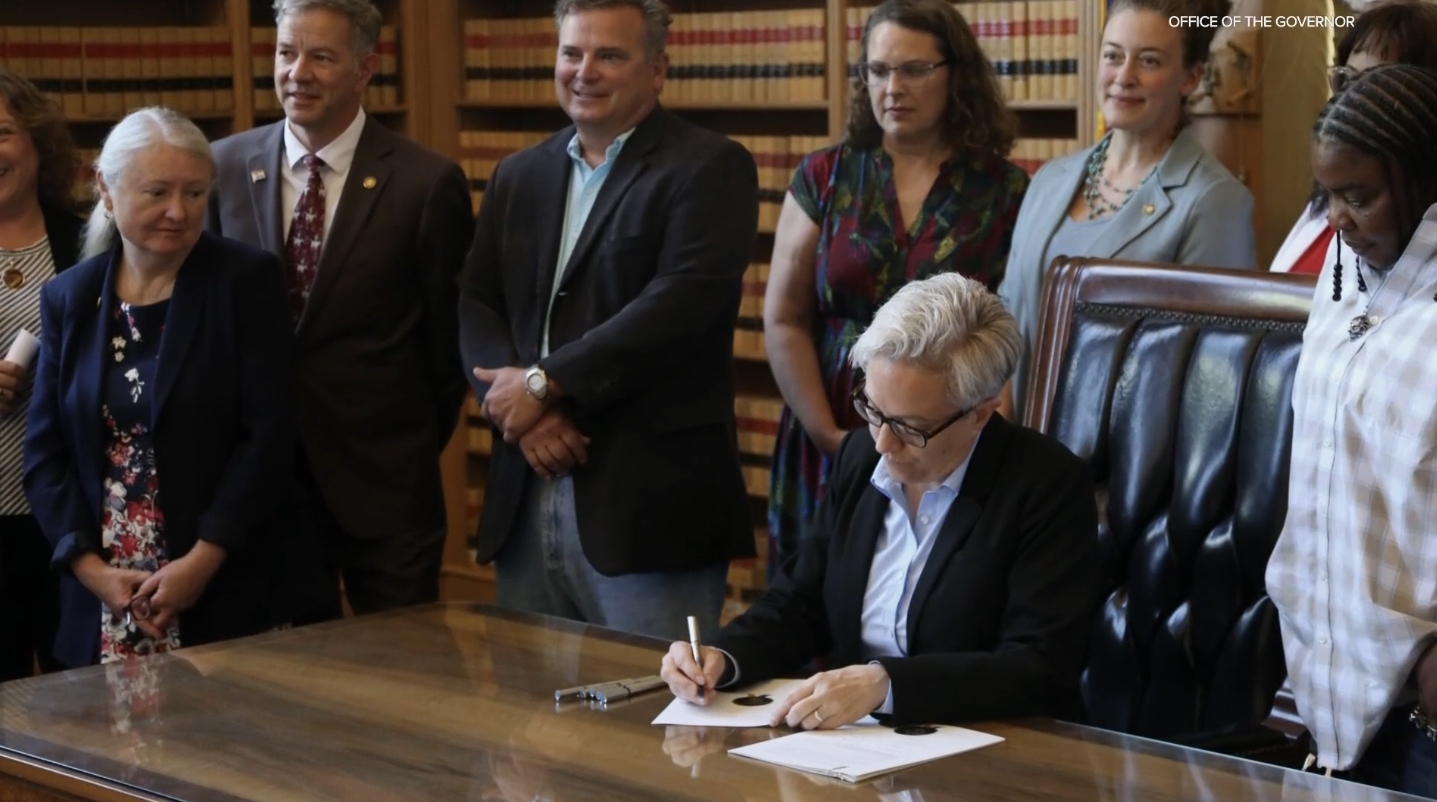-
The government has allocated $4M to restore the Crooked River
The federal government is sending Central Oregon $4M to help restore native salmon and steelhead runs in the Deschutes River Basin. Learn more via OPB here.
READ THE ORIGINAL OREGON PUBLIC BROADCASTING ARTICLE HERE
This image is a work of a Bureau of Land Management* employee, taken or made as part of that person’s official duties. As a work of the U.S. federal government, the image is in the public domain in the United States.
-
Oregon opens applications for new paid family leave program
Oregon’s new paid family leave program begins in September. Learn more here.
Illustration: Aïda Amer/Axios
Oregon’s new paid family leave program opened for applications Monday, following four years of preparation — disrupted by COVID — after the Legislature authorized it in 2019 with bipartisan support.
Why it matters: Lack of paid family leave often forces workers to choose between paying the bills and caring for a loved one.
State of play: The program allows employees to take up to 12 weeks of paid time off to care for a new child, a seriously ill family member or their own health or personal safety. It will cover the entire paycheck of a minimum wage worker and scales down as income climbs.
- Oregon is now one of a dozen states where most workers will have this benefit regardless of employer.
- It’s one of five that include “affinity” relationships in the definition of family.
How it works: Both employees and employers have been paying into the Paid Leave Oregon fund since the beginning of this year. Sept. 3 is the earliest that benefits can start.
-
Gov. Kotek signs six bills aimed at addressing Oregon's mental health, addiction issues
Gov. Kotek signed bills that will address Oregon’s mental health. Learn more here.
KGW8, SALEM, Ore. — Gov. Tina Kotek vowed to make meaningful strides for behavioral health in Oregon on Tuesday. She signed into law six bills that aim to strengthen the state’s response to mental health and substance abuse issues.
“The bills I am signing mark progress towards building a behavioral health continuum of care that incorporates harm reduction, suicide prevention, stronger tools against substance abuse among youth and adults, and improvements to the implementation of Measure 110,” Kotek said to a group of lawmakers and advocates.
Among the bills signed into law, two focus on preventing overdose deaths. House Bill 2395expands the access of short-acting opioid overdose reversal medications like Narcan and naloxone, making them more readily available in public buildings, stores, police departments and schools.
The second bill, Senate Bill 1043, requires hospitals, sobering and detox facilities to provide two doses of opioid overdose reversal medication to patients when they’re discharged.
“The goal is to help people be healthy and stay alive,” Kotek said.
Then there’s the bill to fix issues with Measure 110, or HB 2513. The governor’s office said it will strengthen Measure 110 by increasing staffing and improving application processes to speed up approval and get funds out the door, centralizing the support hotline to get people connected to services more efficiently, and improving program data collection and accuracy.











